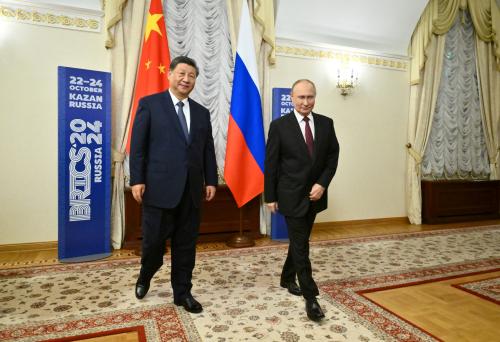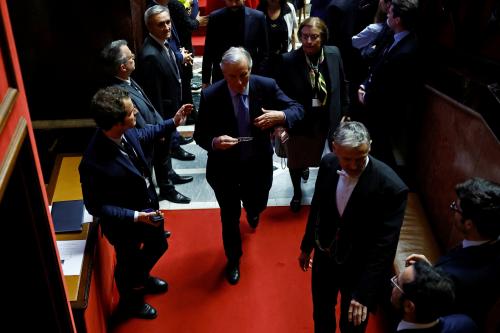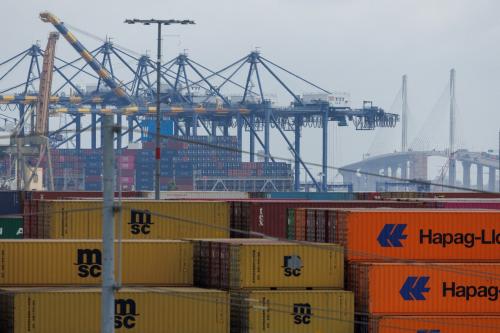In a referendum on May 29, French voters rejected the EU draft constitution by a vote of 55% to 45%. This follows a series of approvals in nine other European countries, including one (in Spain) by referendum. But since the document must be ratified by all 25 countries in order to come into force, the constitution is now in limbo.
The rejection of the constitution will have major domestic political consequences in France. The campaign was extremely intense and divisive, both between and within the major parties. President Chirac’s first step was to designate Dominique de Villepin, one of his closest political associates, as the new Prime Minister. The opposition Socialist party emerges seriously shaken from the campaign and the unity of the Left might prove a thing of the past, while anti-EU right wing parties will attempt to capitalize on the political frustrations of the French electorate. The warm-up period for the presidential race is starting amid a redefinition of the French political landscape: French politicians now know that Europe can no longer be taken for granted.
The Future of the Right
The rejection of the EU constitution is a major political blow for President Chirac. He chose the referendum route, inherently riskier than a parliamentary ratification. He positioned himself, especially in the last six weeks of the campaign, as the leader of the “yes” camp. The first victim of Chirac’s defeat was the Prime Minister, Jean-Pierre Raffarin. President Chirac had announced before the result that he would not resign if French voters rejected the Constitution so the Prime Minister was left alone to pay the price for failure. Raffarin, who was very involved with the “yes” campaign, had been in place for three years, an unusually long tenure, and was deeply unpopular because of his efforts to reform some of France’s most cherished social programs. Chirac no doubt felt that the government needed a new political impetus that Raffarin could not provide.
The ruling UMP (Union pour un Mouvement Populaire) party, which had overwhelmingly endorsed the Constitution, remains united behind Nicolas Sarkozy, who campaigned for a “yes” vote while keeping his distance from President Chirac. The UDF (Union pour la Démocratie Française) adopted a low profile during the campaign, especially considering its pro-European Union credentials, and was marginalized by a UMP that put forward an identical program of support for the constitution and opposition to the Turkish entry into the EU.1 The UDF strategy during the past three years of constantly criticizing the government while usually supporting its policies in parliament may have reached an impasse. No ministers from the UDF will participate in the new government as UDF members, although specific individuals may join the government unsanctioned by the party.
Given the heterogeneity of the “no” camp, it remains to be seen how smaller parties will be able to capitalize on their “victory.” The FN (Front National), which also kept a low-profile in the referendum campaign, will not be able to make much of the result; the same is true for the MPF (Mouvement Pour la France) of Philippe de Villiers. They have few alternative proposals, and a durable alliance between them (as well as with other right-wing proponents of the “no”) is very unlikely, for both personal reasons (each leader wants his own little fiefdom) and political ones (their political bases are different and the French electorate is highly volatile).
The Brookings Institution is committed to quality, independence, and impact.
We are supported by a diverse array of funders. In line with our values and policies, each Brookings publication represents the sole views of its author(s).


